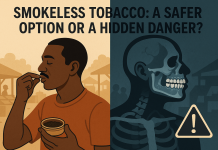Self-abuse is a problem that is, unfortunately, not commonly talked about in Nigeria.
Self-abuse is also called self-injury, self-mutilation, self-harm, non-suicidal self-injury, self-inflicted violence, self-battery, self-injurious behaviour, or deliberate self-harm.
Self-abuse is not to limited any particular religion, age, socioeconomic status, level of education, sex, or race. It can be seen to be practised by anyone, though it is more likely to be seen in certain people than others.
Some of the factors that increase the risk of self-abuse are:
- Age: Self-abuse is most commonly seen in teenagers and young adults. It can also be seen, less commonly, in older adults.
- Victims of bullying in any form.
- Excessive alcohol and drug use – because these reduce self-control.

[Image Source: Pinterest] - People who have been physically, emotionally or sexually abused; including abuse in childhood.
- Problems at school and/or work.
- Persons who learnt to hide their emotions from when they were children.
- Peer pressure: Having friends who self-injure increases the chances of an individual engaging in self-injury as well.
- Absence of a good social support network.
- Individuals who are coping with certain cultural expectations – like arranged marriage.
- Unstable family environment.
- Socially isolated individuals.
- Gender: the common assumption is that females self-injure more than males, but it is not clear whether or not this popular belief is true. Some studies indicate that females are more likely to self-injure, while other studies show that males and females have equal chances of engaging in self-injury. Females are more likely to use the commoner forms of self-injury (like cutting, etc); while males are more likely to use methods that would result in self-bruising (such as punching people or objects with the intention of hurting themselves).
- Race: Some studies suggest that self-injury is common in Caucasians. And other studies indicate that it is just as common in other races.
- Also, different conditions have been associated with self-injury. They include depression, borderline personality disorder, post-traumatic stress disorder, eating disorders, anxiety, and obsessive compulsive disorders.









